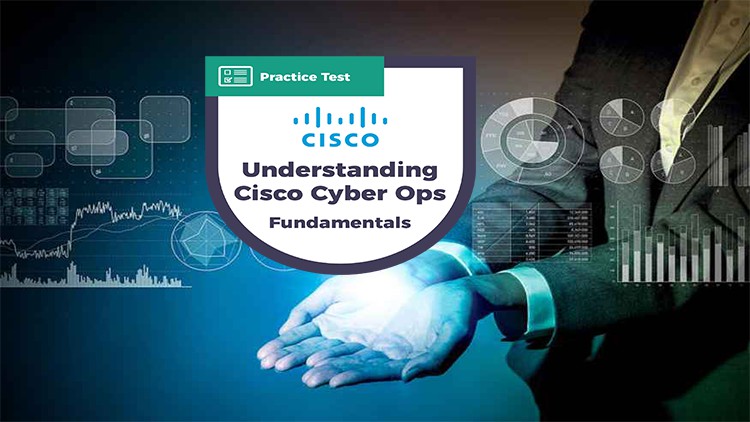
best practice Tests for Understanding Cisco Cybersecurity Operations Fundamentals Certification 2021
The Understanding Cisco Cybersecurity Operations Fundamentals (CBROPS) course teaches you security concepts, common network and application operations and attacks, and the types of data needed to investigate security incidents. This course teaches you how to monitor alerts and breaches, and how to understand and follow established procedures for response to alerts converted to incidents. Through a combination of lecture, hands-on labs, and self-study, you will learn the essential skills, concepts, and technologies to be a contributing member of a Cybersecurity Operations Center (SOC) including understanding the IT infrastructure, operations, and vulnerabilities. This course helps you prepare for the Cisco Certified CyberOps Associate certification
This course will help you:
● Learn the fundamental skills, techniques, technologies, and the hands-on practice necessary to prevent and defend against cyberattacks as part of a SOC team
● Prepare for the Understanding Cisco Cybersecurity Operations Fundamentals (CBROPS) exam which earns the Cisco Certified CyberOps Associate certifica
Objectives
After taking this course, you should be able to:
● Explain how a Security Operations Center (SOC) operates and describe the different types of services that are performed from a Tier 1 SOC analyst’s perspective.
● Explain Network Security Monitoring (NSM) tools that are available to the network security analyst.
● Explain the data that is available to the network security analyst.
● Describe the basic concepts and uses of cryptography.
● Describe security flaws in the TCP/IP protocol and how they can be used to attack networks and hosts.
● Understand common endpoint security technologies.
● Understand the kill chain and the diamond models for incident investigations, and the use of exploit kits by threat actors.
● Identify resources for hunting cyber threats.
● Explain the need for event data normalization and event correlation.
● Identify the common attack vectors.
● Identify malicious activities.
● Identify patterns of suspicious behaviors.
● Conduct security incident investigations.
● Explain the use of a typical playbook in the SOC.
● Explain the use of SOC metrics to measure the effectiveness of the SOC.
● Explain the use of a workflow management system and automation to improve the effectiveness of the SOC.
● Describe a typical incident response plan and the functions of a typical Computer Security Incident Response Team (CSIRT).
● Explain the use of Vocabulary for Event Recording and Incident Sharing (VERIS) to document security incidents in a standard format.
English
Language